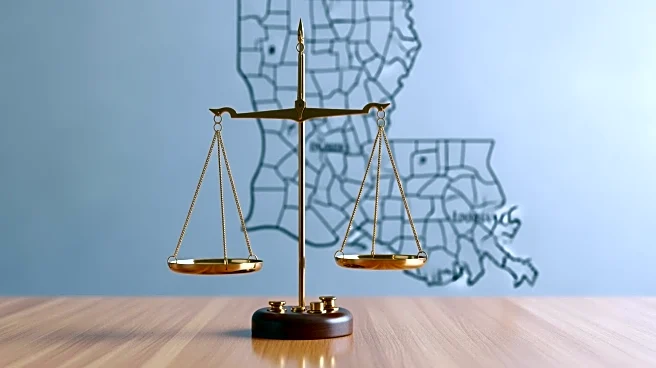What's Happening?
Justice Ketanji Brown Jackson has argued in favor of race-based redistricting during Supreme Court deliberations concerning Louisiana's congressional map. The case arose after lower courts found that the
state's map, which included only one majority-black district, violated Section 2 of the 1965 Voting Rights Act. Jackson compared the situation to the Americans with Disabilities Act, suggesting that minority voters are 'disabled' by current voting systems that do not provide equal access. She emphasized that Congress intended for Section 2 to address and rectify these disparities. The Supreme Court's conservative justices, however, indicated a preference for limiting the use of race in determining district boundaries. A decision is expected by June of next year.
Why It's Important?
The outcome of this case could significantly impact the application of the Voting Rights Act, particularly in how race is considered in redistricting. If the Supreme Court limits race-based redistricting, it may affect minority representation in Congress, especially in states with significant minority populations like Louisiana. This decision could set a precedent for future cases, potentially altering the balance of political power and affecting civil rights protections. Stakeholders such as voting rights activists and minority communities may face challenges in ensuring fair representation, while conservative groups may view this as a reinforcement of race-neutral policies.
What's Next?
The Supreme Court is expected to deliver its decision by June of next year, which will clarify the extent to which race can be used in redistricting. Depending on the ruling, states may need to adjust their district maps, potentially leading to further legal challenges. Political leaders and civil rights organizations are likely to respond, either by advocating for legislative changes or by mobilizing public opinion. The decision could also influence upcoming elections, affecting strategies for both major political parties.
Beyond the Headlines
This case highlights ongoing debates about the role of race in American politics and the interpretation of civil rights laws. It raises ethical questions about equality and representation, as well as legal considerations regarding the balance between race-conscious and race-neutral policies. The decision could contribute to long-term shifts in how voting rights are protected and how minority communities engage with the political system.









